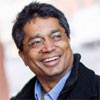The rise of Zohran Mamdani and what it means for the Hindutva project
The election of Zohran Mamdani as mayor of New York City is undeniably historic. His ascent signals big shifts in identity politics, diaspora mobilisation and progressive global linkages. His success has ripple effects, and Indians, whether they are aligned with his vision or opposed to it, know this. For the Modi regime, Mamdani’s rise is a strategic headache.
That a high-visibility American leader of Indian descent, with global reach, openly criticises Modi, invokes India’s pluralist past and identifies with an inclusive vision of citizenship means the Hindutva project is now facing a new kind of adversary: one whose notes of dissent will echo not just in New York but among diaspora communities, global progressive networks and India-outward foreign policy discourses.
Mamdani’s platform blends socialist economic ideals — rent freezes, expanded public housing and an aggressive affordability agenda — with a proud and visible embrace of his Indian heritage. In his victory speech, he invoked Jawaharlal Nehru’s vision of an inclusive India and closed with the Bollywood song Dhoom Machale, symbolically merging his political idealism with cultural pride.
Throughout his campaign, Mamdani frequently spoke about his Indian roots and drew a contrast between the pluralist India he grew up hearing about and the exclusionary one represented by Modi’s BJP, “an India that only has room for certain kinds of Indians”, as he put it. He has publicly described Modi as a “war criminal”, linking his condemnation to the 2002 Gujarat riots and what he calls a broader pattern of political mobilisation........






















 Toi Staff
Toi Staff Gideon Levy
Gideon Levy Tarik Cyril Amar
Tarik Cyril Amar Sabine Sterk
Sabine Sterk Stefano Lusa
Stefano Lusa Mort Laitner
Mort Laitner Mark Travers Ph.d
Mark Travers Ph.d Ellen Ginsberg Simon
Ellen Ginsberg Simon Gilles Touboul
Gilles Touboul John Nosta
John Nosta
